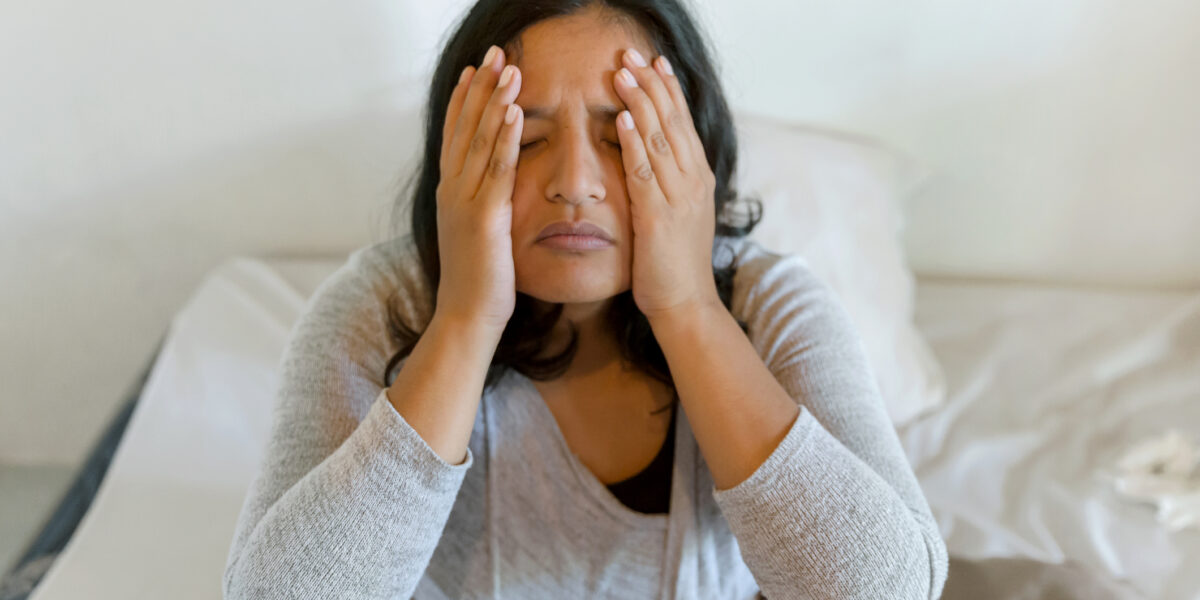Need help with long COVID? Connect with ChristianaCare’s Virtual COVID-19 Recovery Clinic here or call 302-428-2400, option 5.
Most people who have COVID-19 recover in a few days to a few weeks with no long-term problems. But up to 30% of people who have had COVID-19 have health problems that last for weeks, months or years after having the infection. These problems are known as long COVID.
This can happen even if your COVID-19 illness had mild or no symptoms. But long COVID is more common if your illness was serious.
What are symptoms of long COVID?
Often symptoms are mild and can be managed on your own or you’re your primary care provider. Common symptoms of long COVID include:
- Fatigue.
- Headache.
- Trouble thinking or concentrating (“brain fog”).
Some people also report:
- Chest pain.
- Cough.
- Depression and anxiety.
- Dizziness when change positions, such as moving from sitting to standing.
- Fast or pounding heartbeat (heart palpitations).
- Fever that comes and goes.
- Hair loss.
- Menstrual changes.
- Muscle or joint pain.
- Nausea.
- Shortness of breath.
- Sleep problems.
- Smell and taste problems.
These symptoms may get worse after mental or physical activity, and the symptoms may come and go.
If you’ve had COVID-19 and have these problems for at least 12 weeks after your initial infection, tell your health care provider. Make sure your health care provider knows that you had COVID-19.
How is long COVID diagnosed?
To find out if your symptoms could be from long COVID, your health care provider will ask you questions about your health history and do a physical exam. Additional testing and/or a referral to a specialist may be necessary.
How is long COVID treated?
Your treatment will depend on your symptoms. Some symptoms may be treated with medicine. Or you may see a specialist. Your health care provider also may recommend different treatments, such as physical therapy, depending on your symptoms.
We can help. The Virtual COVID-19 Recovery Clinic team includes a primary care doctor, cardiologist, endocrinologist, neurologist, pharmacist, psychologist, pulmonologist and sports medicine specialist.
We can help. The ChristianaCare Center for Virtual Health offers a special clinic — the Virtual COVID-19 Recovery Clinic — with a primary care doctor, cardiologist, endocrinologist, neurologist, pharmacist, psychologist, pulmonologist and sports medicine specialist.
Here’s how to connect with us:
- If you have a primary care clinician or specialist who is at ChristianaCare, they can directly place referral in the electronic health record.
- You or primary care provider (if outside of ChristianaCare) can call 302-428-2400, option 5, and provide demographic information along with dates of COVID-19 infection.
Our primary care doctor and clinic team will develop a customized, personalized patient plan. A nurse will follow up to help you implement the plan. Patients monitor blood pressure and heart rate at home as needed and stay connected to their health care team through a secure text-message platform.
The Center for Virtual Health offers group therapy for all long COVID patients. The group is led by dedicated psychologists who support patients with compassion and guidance for navigating life with long COVID.
How can I care for my long COVID symptoms?
Here are some common symptoms along with some ideas for self-care to help you feel better.
- Return to activities slowly. It takes time to get stronger. Pace yourself.
- Consider breath training for shortness of breath. Breath training can help you take deeper breaths and breathe more easily. Methods include pursed-lip breathing and breathing with your diaphragm.
- Prop up your head with pillows to help control coughing.
Here are other common problems, along with some tips you can try.
- Trouble thinking or concentrating (“brain fog”). Be patient with yourself. Use sticky notes and calendars to remember tasks and events.
- Depression or anxiety. Regular activity, like walking, may help. Get plenty of sleep. Avoid drugs and alcohol. Consider talking to a counselor. Take medicine as prescribed.
- Muscle or joint pain, or headaches. Stretching may ease muscle pain. Ask your health care provider if you can take over-the-counter pain medicine.
If you aren’t getting better, talk to your health care provider. If you need a primary care provider, click here to find one near you.



